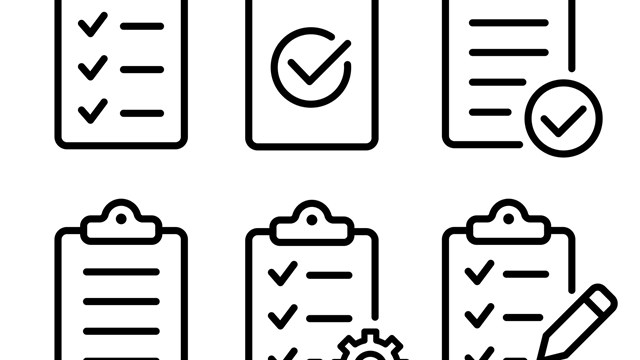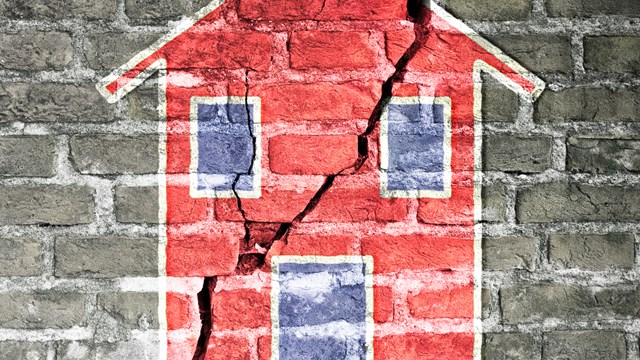In your own household, you have money coming in and money going out. You have things you want to save up for—say, a new cool high-def, flat screen television or the latest iPad. Yet you owe your car company and your creditors. To keep it all straight and get a handle on your spending and what you need to save for, financial experts recommend creating a budget.
Running an association is no different. There is money coming in from resident fees and money going out to pay such items as the landscaper or the maintenance crew. But what about if the roof springs a leak, the insurance rates go up, or the cost of electricity skyrockets? How does an association keep track of it all? The same way an everyday Joe would—they draft and stick to a budget.
An Integral Part
There is one major difference with our own personal budgeting and an association’s budgeting. Unlike our individual budgeting process, there are two kinds of budgets for an association—an operating budget and a capital budget. Capital budgets apply to long-term, big-ticket items like new roofs or an HVAC overhaul.
By contrast, the operating budget covers recurring monthly expenses such as payroll and salaries, taxes, utilities, insurance and maintenance items. In creating and managing an operating budget, co-op and condo boards must try to predict expenses, balance cash inflow and outflow, and be aggressive in collecting arrears and late fees from delinquent residents.
Budgets are an integral part of an association’s financial plan. They help to set goals for achieving an income and monitor how much is being spent. But who is responsible for creating the budget? “Typically the budget is created by someone in the accounting department of the management company, in most cases the chief financial officer if they have one,” says Stuart Mayer, a partner at the accounting firm of Mayer & Meinberg in Syosset. “Once the first draft is complete it is presented to the board for review. In certain circumstances, they ask the outside CPA to review the budget. This usually happens if the management company does not have a CFO or other qualified individual to prepare the budget. Also, if the property is self-managed more than likely they would look to the CPA to assist with the budget preparation.”
Mayer explains that the operating budget includes all revenues and expenses. Income is the money gained from several sources depending on the property. It can come from rental monies, dues, assessments, interest on bank accounts, financial penalties, user fees and security deposits. Expenses, or what is paid, are those that are set and are paid every month, such as personnel and maintenance expenses, or variable expenses—which vary from month to month—such as utilities and various maintenance charges.
Preparing a Budget
The main parts of any budget are income and expenses. It is important to first understand what has been going on in the building financially: history of maintenance and repairs, utilities, fuel costs and projects, says Jayson Prisand, CPA, a partner at Prisand, Mellina, Unterlack & Co. LLP in Plainview. “And then you take some of those historical statistics and you apply some more of your knowledge about what is currently going on at the property and you try to make your forecast. So it's not an easy thing. Some people might think that you just basically take the current year's actual results and present it to them and you're done. But that's not very accurate. It's much more accurate if you're able to really analyze a couple of years’ worth of actual results and put that in context with what's going on with the current operations,” he says.
Prisand advises his co-ops and condos to start thinking about the next year's budget around October, making the assumption that you have a calendar year-end financial. “By October, you will have nine months’ worth of data and history so that you will be able to evaluate the prior year's budget forecast to actual, in terms of how accurately have you been budgeting or what unexpected items you incurred.”
The operating budget should be based on ordinary recurring types of transactions, Prisand says. These include utilities, payroll, monthly landscaping, just to name a few. “When you have one time non-recurring or extraordinary expense items, typically those are segregated into a separate category,” he explains.
Saving Money
Once a budget is created, it’s normal to go through sticker shock—or see how much you’re truly spending, so it’s important to generate some money saving ideas that will help to limit your association’s debts. Costs should always be on the forefront of everyone’s mind and there may come a time when you have to tighten your belts. Energy prices rise, businesses close, and suddenly you’re paying more for the same services. Reviewing the budget on a monthly basis gives you plenty of opportunities to find hidden dollars in savings.
Mayer suggests that locking in long-term contracts can help reduce costs. “This is commonly done with management fees, audit fees, landscape maintenance, snow removal and security costs if for a gated community,” he says.
Projects may have to be put on hold but Prisand cautions against cutting costs with routine maintenance. “The repairs and maintenance seems to be an area where people try to cut corners. But if repairs and maintenance work are not performed, that could lead to quicker failure of building systems, which would then lead to increased need for capital costs. It could end up costing people more money in the long run,” he says.
It is also important not to underestimate operating costs of the building, says Gary Adler, CPA, who is with the accounting firm of Bass & Lemer in Manhattan. While there is no guarantee for example, that this winter will be as harsh or as mild as the last, fuel costs are probably one of the biggest components of a building’s budget. It is better to be prepared rather than scrambling to cover costs later, he says. “Don't squeeze the budget so tight, make it what it is. You're better off being slightly over than under,” he says.
Surplus
In simple terms, the bottom line is the last line of the budget—the line that shows whether there is a profit or loss. Finding this number can be done by taking the fixed and variable expenses and subtracting them from the total income. This is net operating income. Once you have this number, you can see how much money is flowing in.
What if, once the budget is done, you end up with extra money in the plus column. What do you do? No, this isn’t a trick question and divvying it up among the board members or the residents is not an option.
Adler says that it is best practice to put the surplus into the reserve fund, that way the money could be used to offset the cost of future projects, cover unexpected costs from high utilities in a harsh winter or wind damage from a spring storm or carried over for next year's operations in case there is a deficit. “You should never run your building without some extra reserves,” he says.
Reserves
Emergencies are going to happen. For example, even though it has been properly maintained, the boiler suddenly breaks down. “To pay for the repair, you use your building’s reserve fund, which is exactly what it sounds like, money reserved in case something goes wrong,” says Melissa Prandi, a California-based property manager and best-selling author. “Each month, part of the rent or the dues collected from tenants is designated to pump up the reserve fund to cover emergencies. How much money should be in the reserve is determined by a reserve study.”
How much should be set aside? “As a rule of thumb we have always encouraged our clients maintain in reserves six months of maintenance or common charges. This is not an exact science and every property is different. Some clients keep more than this while other have far less,” explains Mayer. “Since the main source of revenue in these communities is from the members who reside in the community, the two options to cover these unexpected costs are either to increase maintenance or charge an assessment. If every year a community charges an assessment to cover unexpected costs since they always do arise—this will be perceived as maintenance anyway to any prospective purchasers. This is why we encourage our clients to have small annual maintenance increases as costs are always rising and if there is a surplus, these funds can be contributed to the reserves.”
Adler adds that there is no hard number that “should be” kept in the reserve fund. “The board has to sit down with management, even if they don't want to do an actual reserve study with an architect or engineer, to see what is coming due. You have to evaluate the needs of your building and then keep the shareholders and unit owners informed should you need to increase assessments for the reserve,” he says.
Financial statements and budgets are prepared so the goals and objectives of the association can be met. Carefully planning your capital expenses and budgeting for them properly can significantly reduce overall building expenditures while maximizing the use and enjoyment of your building community.
Lisa Iannucci is a freelance writer and a frequent contributor to The Cooperator. Editorial Assistant Maggie Puniewska contributed to this article.







Leave a Comment